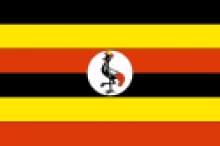Film Highlights Global Lack of Reproductive Freedom
Film Highlights Global Lack of Reproductive Freedom
But in many countries, that just doesn’t occur. Take Uganda, for example. In the new short movie, Empty Handed: Responding to the Demand for Contraceptives, we learn that women in Uganda who want to have access to birth control don’t receive the contraceptives they so desperately require. An average woman in Uganda will give birth to 6.7 children, which amounts to the second largest rate of births in the world. Globally, more than 2 million women face this same situation.
When women in remote areas travel to health centers to obtain contraceptives (and why aren’t the men doing the same thing, I might ask?), they are often turned away empty-handed due to a lack of birth control. Places seem to simply run out of the live-saving medications and other forms of contraception, leaving women virtually powerless to control their own bodies.
In many of these areas, contraceptives are not only vital to protect against pregnancy; they are also direly needed to help protect women against contracting an STD—most notably, HIV/AIDS. In lesser developed nations, the risk of dying because of these diseases or pregnancy itself is 1 in 75—a horrifying statistic. In specific areas, it’s even bigger—at 1 in 22.
If you were told that you had a 1 in 22 chance of dying due to pregnancy, would you ask for birth control? I know I would. In fact, I did; I was lucky enough to be born in a country where I can easily obtain mine for a monthly fee.
Those of us who grew up privileged in the Western world—and not confined within the structure of a religion or other system that doesn’t allow birth control—know how important it is for women to control their own reproductive decisions. In many cases, this is the only thing that can separate a woman from poverty—whether it’s her first pregnancy or sixth. Women who continue to have so many children are also at a higher risk of death, leaving their previous children behind as orphans.
Please check out Empty Handed, and be sure to download the advocacy guide at the website to find out how you can raise awareness about women’s lack of access to birth control and help increase support for these women around the world.


